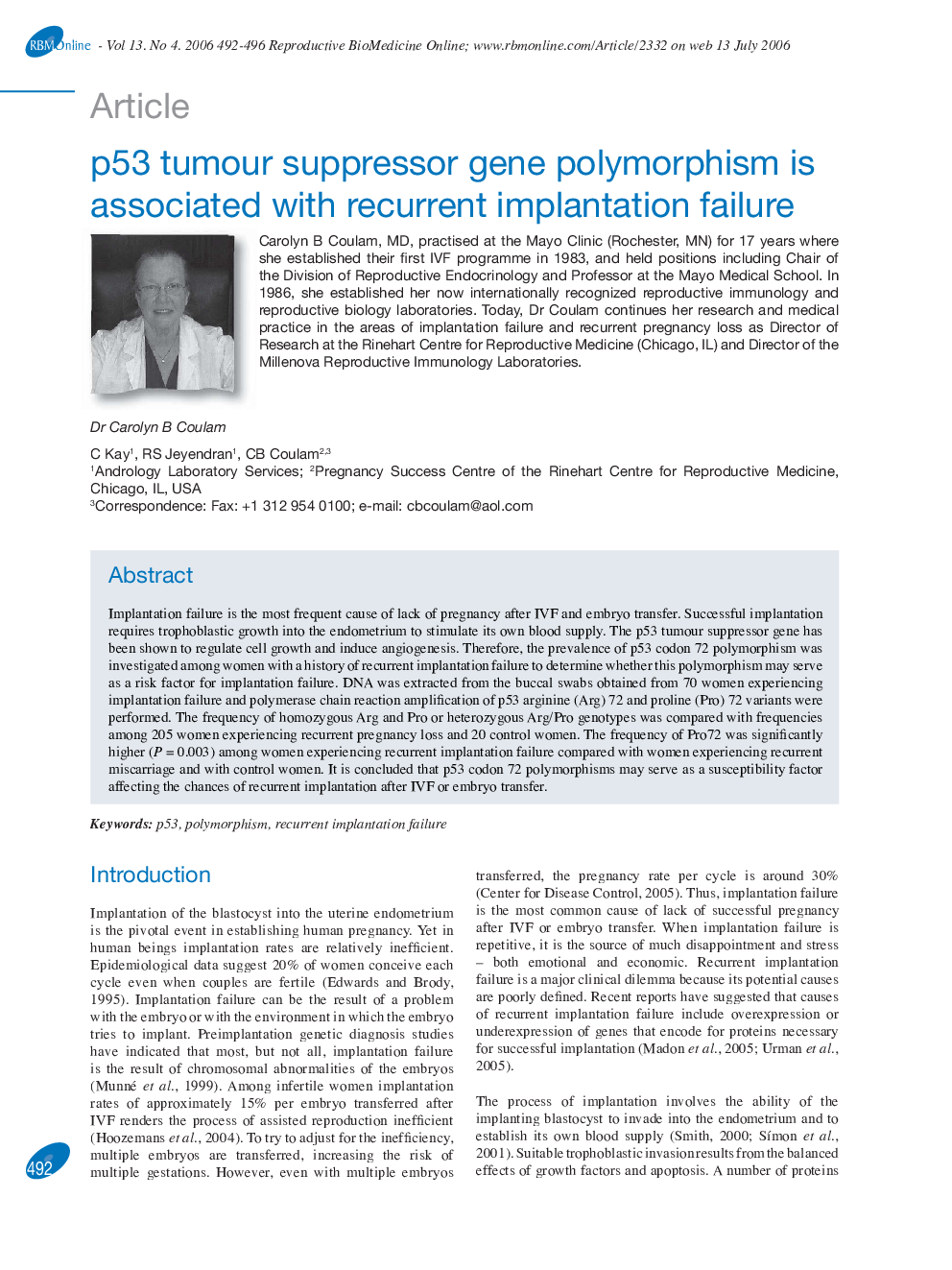| Article ID | Journal | Published Year | Pages | File Type |
|---|---|---|---|---|
| 3973435 | Reproductive BioMedicine Online | 2006 | 5 Pages |
Implantation failure is the most frequent cause of lack of pregnancy after IVF and embryo transfer. Successful implantation requires trophoblastic growth into the endometrium to stimulate its own blood supply. The p53 tumour suppressor gene has been shown to regulate cell growth and induce angiogenesis. Therefore, the prevalence of p53 codon 72 polymorphism was investigated among women with a history of recurrent implantation failure to determine whether this polymorphism may serve as a risk factor for implantation failure. DNA was extracted from the buccal swabs obtained from 70 women experiencing implantation failure and polymerase chain reaction amplification of p53 arginine (Arg) 72 and proline (Pro) 72 variants were performed. The frequency of homozygous Arg and Pro or heterozygous Arg/Pro genotypes was compared with frequencies among 205 women experiencing recurrent pregnancy loss and 20 control women. The frequency of Pro72 was significantly higher (P = 0.003) among women experiencing recurrent implantation failure compared with women experiencing recurrent miscarriage and with control women. It is concluded that p53 codon 72 polymorphisms may serve as a susceptibility factor affecting the chances of recurrent implantation after IVF or embryo transfer.
